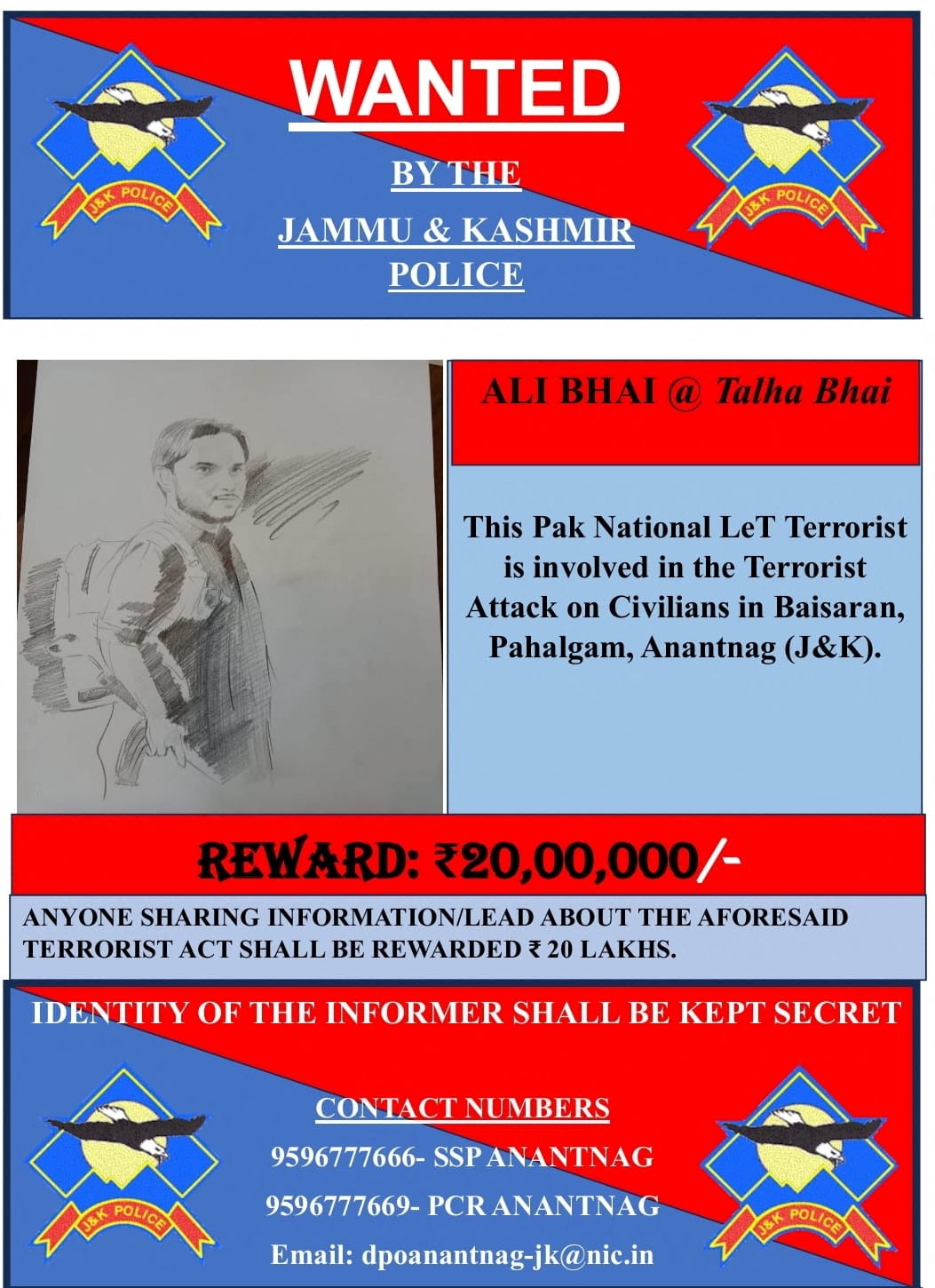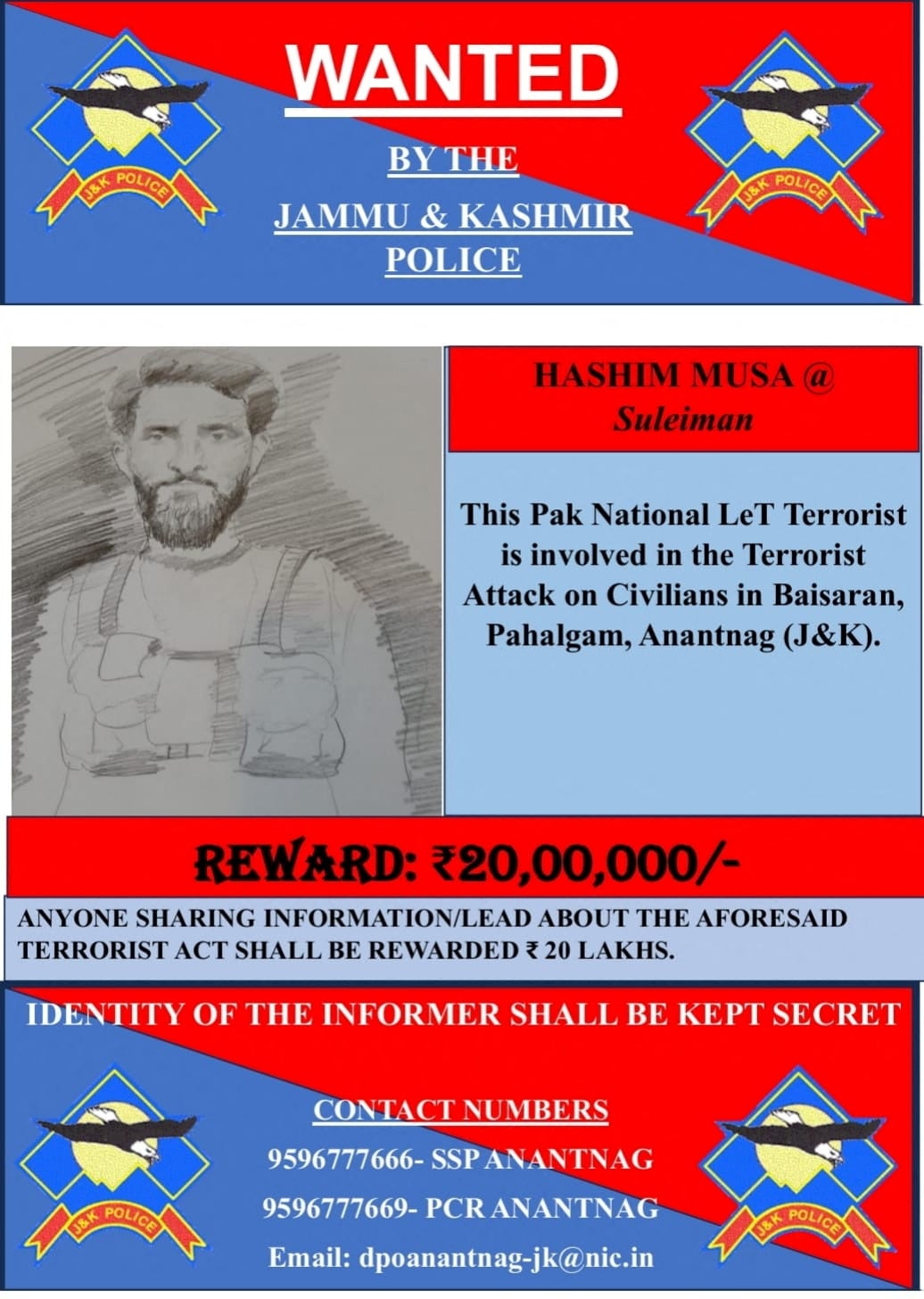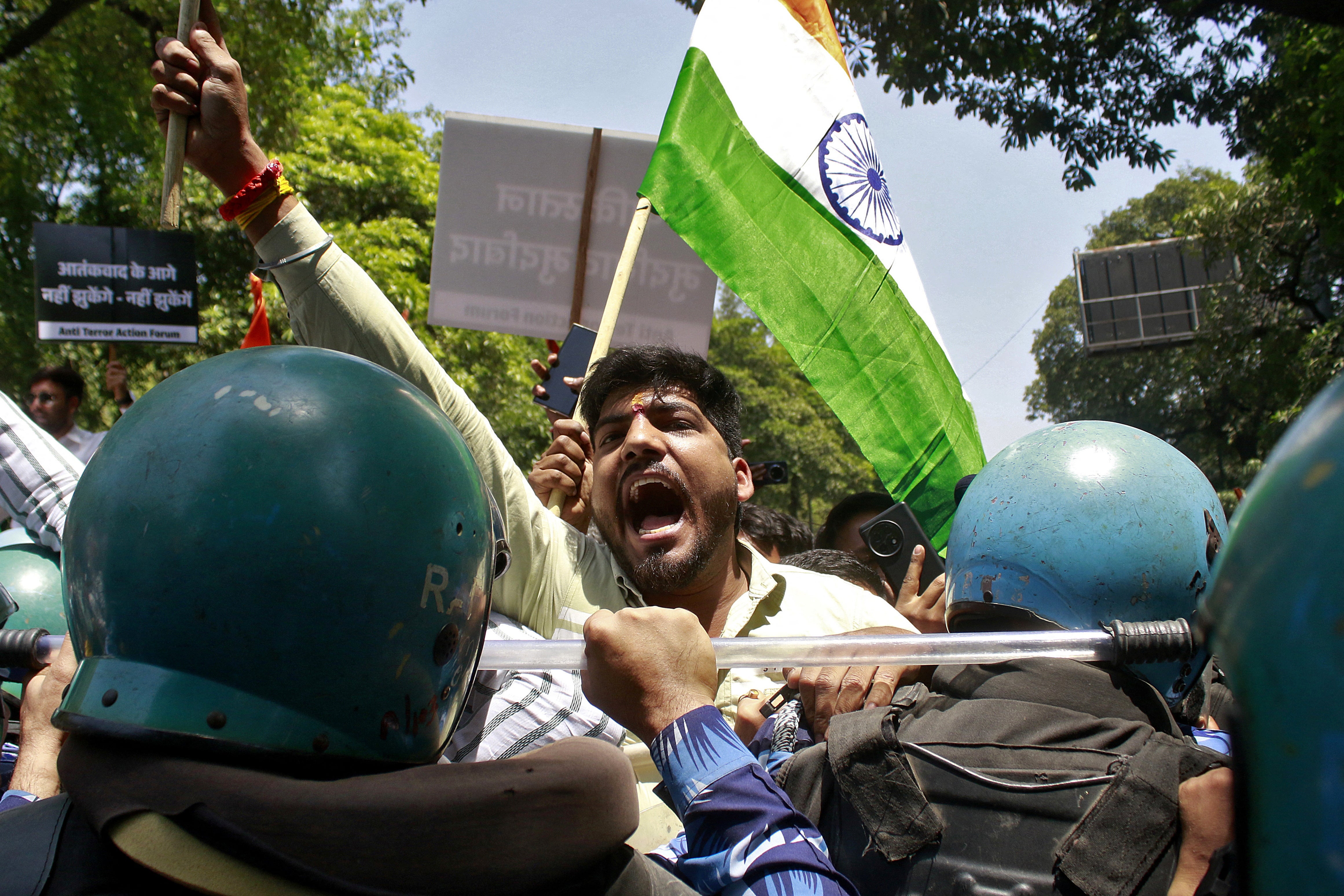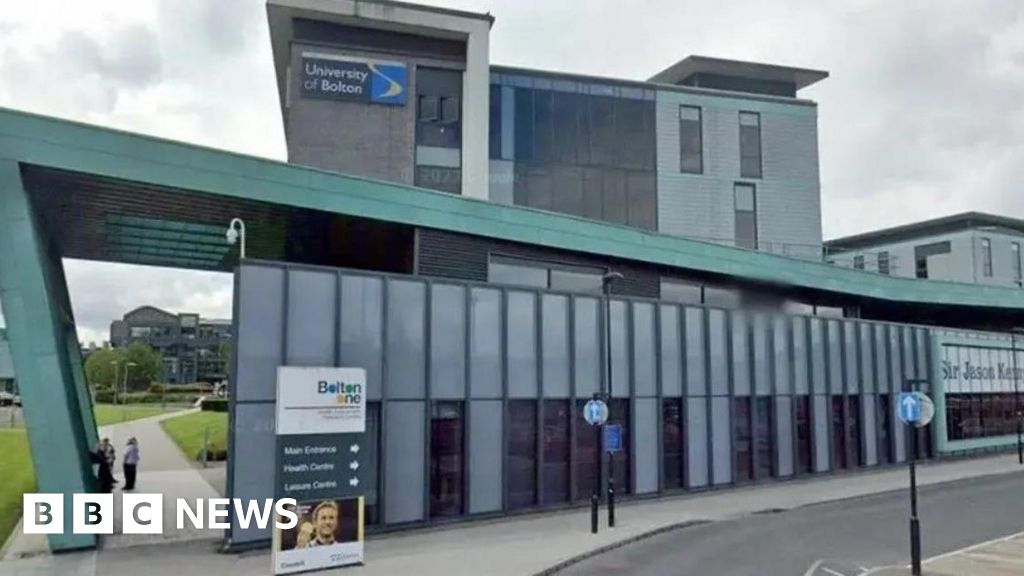The US designated the Resistance Front (TRF), also known as the Kashmir Resistance, as a foreign terrorist organisation, months after a deadly terror attack in Kashmir killed 26 people.
The 22 April attack, which targeted a group in the Pahalgam area of southern Kashmir, was initially claimed by the TRF on social media, though the group later retracted its statement. It was one of the deadliest militant strikes in the region in recent years.
The TRF emerged in 2019 and is widely seen by Indian officials and counter-terrorism experts as a proxy for Lashkar-e-Taiba (LeT), a militant organisation that has already been listed as a foreign terrorist group by the US.
LeT is accused of orchestrating numerous attacks in India and the West, including the coordinated siege in Mumbai in November 2008 that left over 170 people dead.
“This is basically a front of the LeT,” said Ajai Sahni, executive director of the South Asia Terrorism Portal, a Delhi-based research body.
“These are groups which have been created over the last years, particularly when Pakistan was under pressure from the Financial Action Task Force, and they were trying to create a pattern of denial that they were involved in terrorism in Jammu and Kashmir.”
India’s National Investigation Agency (NIA), which is responsible for probing terror-related offences, said on 22 June that two men had been arrested for sheltering three militants involved in the Pahalgam attack.
In its statement, the NIA said the detained individuals had disclosed the identities of the attackers, all of whom were confirmed to be Pakistani nationals and members of LeT.
According to investigators, four to six gunmen in military fatigues emerged from a forest near Baisaran meadow and opened fire on three locations frequented by tourists.
Some of the attackers were reportedly wearing body cameras to record the carnage – footage that authorities believe may be used for militant propaganda. Indian officials have attributed the assault to the TRF, which they consider a front for the Pakistan-based group Lashkar-e-Taiba (LeT).
Wanted posters have been issued for three suspects: Adil Hussain Thoker, a Kashmiri local believed to have trained in Pakistan and guided the gunmen; and two Pakistani nationals, Hashim Musa alias Suleiman and Ali Bhai alias Talha Bhai. Police have announced a bounty of Rs 2 million (£17,600) for information leading to their capture and have assured anonymity for informants.

While the TRF have not previously been linked to mass-casualty events, Indian intelligence services maintain that all its actions are effectively directed or sanctioned by LeT.
“All TRF operations are essentially LeT operations. There will be some measure of operational freedom as to where they hit on the ground, but the sanction would have come from the LeT,” said Mr Sahni.
India’s ministry of home affairs informed parliament in 2023 that the TRF had played a role in orchestrating killings of both civilians and security personnel in the contested region of Jammu and Kashmir. The ministry said the group had been engaged in recruiting militants and facilitating cross-border trafficking of weapons and narcotics.

For the past two years, TRF also issued online threats against individuals and groups aligned with pro-India positions, according to intelligence sources quoted by Reuters.
Pakistan, which claims Kashmir as its own and has long opposed Indian control over the region, has denied any direct support for militant activity, asserting that its involvement is limited to offering “moral and diplomatic” backing to the people of Kashmir.
The latest designation by Washington may increase pressure on Islamabad to further crack down on terror networks operating from its territory.
Legal and political experts say that for this designation to be watertight, cooperation between US and Indian agencies will be crucial to trace TRF’s funding streams and cross-border links – particularly given Pakistan’s repeated denial of material support.

Who carried out the attack?
Several Indian media outlets have reported that the Kashmir Resistance, also known as The Resistance Front, or TRF, claimed responsibility for the attack. However, questions have swirled about the authenticity of that claim.
In a statement, the TRF claimed the attack was in retaliation for the Indian government’s alleged attempts to change Kashmir’s demography, not least through the issuance of over 85,000 residency certificates to non-locals.
“Consequently, violence will be directed towards those attempting to settle illegally,” it said.
The TRF first reared its head online after the Narendra Modi government revoked the semi-autonomous status as well as statehood of Jammu and Kashmir in August 2019 and split it into a pair of federal territories ruled directly from New Delhi.

In January 2023, the Indian government designated the TRF as a terrorist organisation and its alleged commander, Sheikh Sajjad Gul, a terrorist. The federal anti-terrorism agency, National Investigation Agency, then put out a bounty on the commander.
Sources in Indian security agencies have said Musa and Talha infiltrated into Kashmir in 2023 and that they were under investigation for their suspected involvement in at least two other attacks targeting non-local labourers and army personnel.
The third suspect, Thoker, is believed to have travelled to Pakistan in 2018 for arms training.
In the Pahalgam attack, he acted as a local guide, providing logistical support to the “well-trained and battle-hardened” Pakistani gunmen, the sources told The Indian Express.
India has directed its anger towards Pakistan, the rival neighbouring New Delhi has long accused of fuelling armed separatism in the Kashmir valley.
In the wake of the attack, India downgraded its already deteriorated diplomatic and trade ties with Pakistan and Islamabad hit back with a slew of similar measures.
Pakistan has denied any role in the attack, with its leadership, including prime minister Shehbaz Sharif, labelling it a “false flag operation” by India.
India and Pakistan each administer a part of Kashmir but claim the territory in its entirety. New Delhi typically describes all militancy in Kashmir as Pakistan-backed terrorism. Pakistan denies this, and many Muslim Kashmiris consider the militants to be part of a home-grown separatist struggle.
Despite largely strained relations, the neighbours have intermittently made efforts for peace.
However, the latest incident has raised fears of a military conflict along the highly sensitive border, which has witnessed sporadic incidents of cross-firings despite several ceasefire pacts being in place to ease the tensions.




